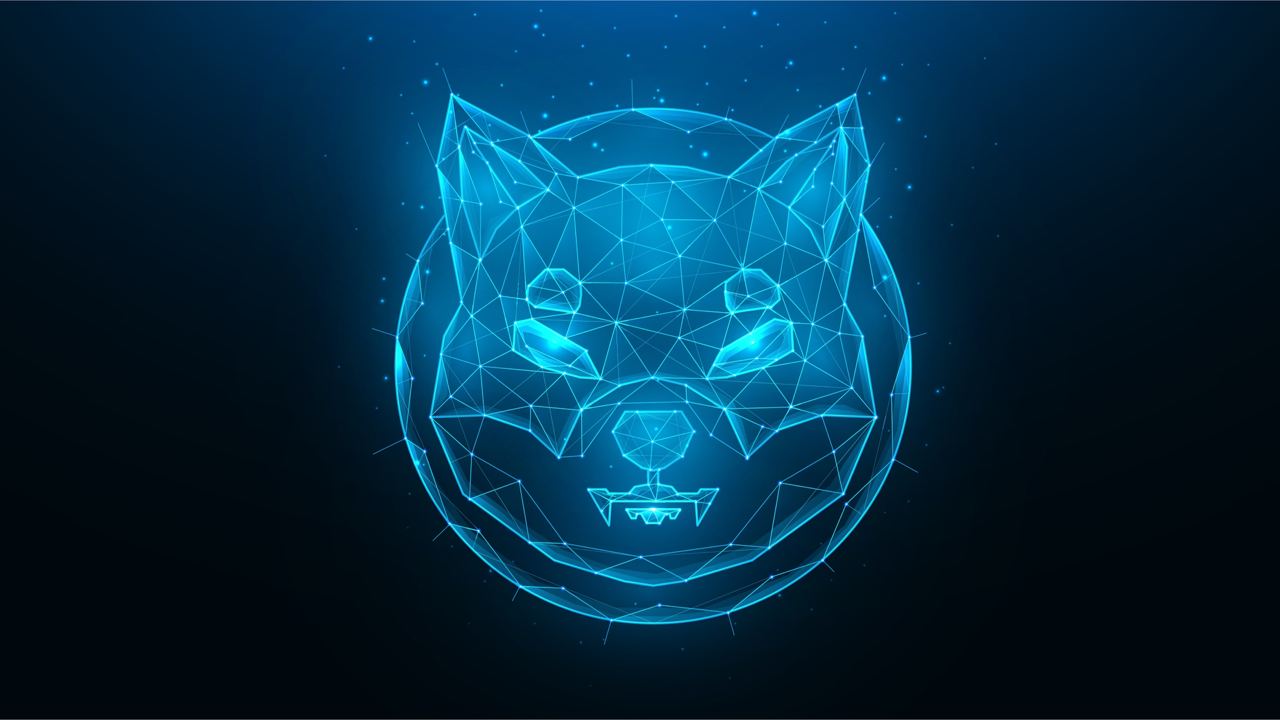 During the last half of 2021, decentralized autonomous organizations (DAO) have been popping out of the woodwork in mass numbers, airdropping tokens and creating governance systems for specific projects. Just before the end of the year on December 31, the developers behind the Shiba Inu crypto protocol have announced the launch of a “Doggy DAO” […]
During the last half of 2021, decentralized autonomous organizations (DAO) have been popping out of the woodwork in mass numbers, airdropping tokens and creating governance systems for specific projects. Just before the end of the year on December 31, the developers behind the Shiba Inu crypto protocol have announced the launch of a “Doggy DAO” […]
The event connects ATOM stakeholders, developers and enthusiasts from all over the world with the latest developments on the Cosmos blockchain.
The team behind interoperable blockchain network Cosmos (ATOM) recently hosted the Cosmoverse Conference live from Lisbon, Portugal.
Cosmonauts,
— Cosmos - Internet of Blockchains ⚛️ (@cosmos) November 5, 2021
#Cosmoverse it’s LIVE!
This event is 100% from the community to the community, and we are proud to have our Cosmos Hub Community Pool as the main sponsor!
Tune now to the livestream and prepare yourself to dive into cosmos’s wonders
https://t.co/OzyD3bSdqB pic.twitter.com/QFXHu5l3B6
Kicking off the two-day event, Zaki Manian, co-founder of decentralized finance, or DeFi, project Sommel and former lead developer at Cosmos and Tendermint (Cosmos network's core contributor), discussed a number of technologies under development by the Cosmos ecosystem.
According to Manian, a development called ABCI ++ will enable the addition of consensus events on other blockchains to the block production process, improving the efficiencies of cross-chain bridges and oracles on the network. Next, developers can use dynamic IBC (dIBC) functionality to introduce governance proposals across different blockchains instead of only IBC token transfers. Thirdl, liquid staking would allow users to stake their ATOM while receiving a derivative of the asset that can be used in DeFi applications. Finally, interchain accounts are meant to help build multichain applications, where decentralized autonomous organizations, or DAOs, on one chain can directly control accounts or wallets on another.
Sunny Aggarwal, co-founder of Osmosis, a decentralized exchange, or DEX, on the Cosmos ecosystem, elaborated on the concept of liquidity staking further during the panel. Aggarwal explained that coin holders could soon earn better yields by simultaneously accessing multiple DeFi pools with the same underlying tokens. He raised the example of users pledging their Osmosis (OSMO) tokens to provide trading liquidity for the exchange, receiving OSMO liquidity provider tokens, and then depositing the same OSMO LP tokens back into a staking pool. So coin holders can harvest the yield in the LP pool and the staking pool all at once.
In another segment, Enrico Talin, co-founder of Commercio.network, claimed to have created the first legally-binding blockchain in the world. Its infrastructure stores encrypted versions of users' personal data, such as vaccine records, driver's licenses, passports, etc. Theoretically, users would be able to send their electronic signature and proof of identity over the blockchain when requested, such as when signing up for a new bank account. The verifier can then confirm, via decentralized consensus, that the signature is genuine and the documents are from a legit issuer.
However, no personal data is exchanged on the blockchain, only their proofs. Talin then discussed the possibility of creating legally binding nonfungible token, or NFT, contracts that confirm the ownership of real-world assets. Later this year, privacy-broadcast features, IBC, and legal document NFTs will all be available on Commercio.network.

Speaking on Bitcoin: “In some ways, the number of critics matters much less than the strength of the supporters.”
In an recent podcast interview with The Stakeborg Talks, co-founder of Ethereum, Vitalik Buterin spoke candidly on a wide range of issues including his early attraction to mathematics and problem solving, the potential of decentralized autonomous organizations, or DAO’s, as well as his perspective on Bitcoin’s community and the non fungible token, or NFT, space.
Early on in the conversion when inquired on his preference for career title, Buterin — a modest entrepreneur with an animated passion for his profession — referred to himself as a tech philosopher, and as such perhaps coined the term.
Paraphrasing the infamous scholar and warrior quote from Athenian historian Thucydides, Buterin drew perspectives on the shifting dichotomy between the tech industries dogma of continual advancement and the abstract space carved out for thought-leaders in philosophy.
When asked whether we see a flippening of Ethereum surpassing Bitcoin not only in price value, but also as a store of value asset, he simply replied “It could”, before expanding his viewpoint:
“I think the big difference between Ethereum and Bitcoin is that Bitcoin is a platform where the value of the ecosystem comes from the value of the currency, but in Ethereum the value of the currency comes from the value of the ecosystem.”
Ethereum’s highly-anticipated London hard fork upgrade in mid-August is enhancing the network’s transaction payment system, mostly notably with transaction fees and miner revenue. Citing this, Buterin continued from the above conversation to say:
“Especially post-EIP 1559 when you have the fees burnt, that then becomes true in a more direct economic sense.”
In September this year, Buterin was featured in the inaugural Time Magazine’s 100 top influential people of 2021 for his integral role in the growth of the Ethereum network to in excess of $400 billion in market capitalization, amongst other recognitions in the DeFi and NFT space.
Speaking on the rise of decentralized autonomous organizations, and specifically the development of models such as quadratic voting, quadratic funding, Buterin outlined the Gitcoin DAO and Optimism retroactive public goods experiments as examples of projects evolving the landscape.
When questioned whether DAO’s will become the next sector to emerge within the cryptocurrency ecosystem following the successes of decentralized finance and non fungible tokens, Buterin expressed:
“I think DAO’s are definitely going to be more important over time... In terms of what’s still missing from the DAO space, I don’t think there’s any one big thing, but more a lot of little things. When will be the first time a DAO decides to make a strategy pivot, or when will two DAO’s decide to merge? It's the ability to make big decisions and not just continue incrementally on the same path, that’s something I think we’ll see soon.”
Related: Vitalik thinks token-based decentralized governance is holding DeFi back
And finally, commenting on the rapid emergence of the NFT space, Buterin shared some insight into the new demographic attracted by the asset:
“I think NFT’s have been interesting from a cultural perspective because they bring people into Ethereum that have a completely different mindset than DeFi and regular crypto people for example.”
 A report published by the British bank Standard Chartered indicates the company’s analysts are bullish about the crypto asset ethereum. The bank’s analysts think that bitcoin could reach $175K and said “structurally, we ‘value’ ethereum at $26,000-$35,000.” British Bank Publishes ‘Ethereum Investor Guide,’ Formulates the Economic Case for Ethereum’ The British multinational banking and financial […]
A report published by the British bank Standard Chartered indicates the company’s analysts are bullish about the crypto asset ethereum. The bank’s analysts think that bitcoin could reach $175K and said “structurally, we ‘value’ ethereum at $26,000-$35,000.” British Bank Publishes ‘Ethereum Investor Guide,’ Formulates the Economic Case for Ethereum’ The British multinational banking and financial […]